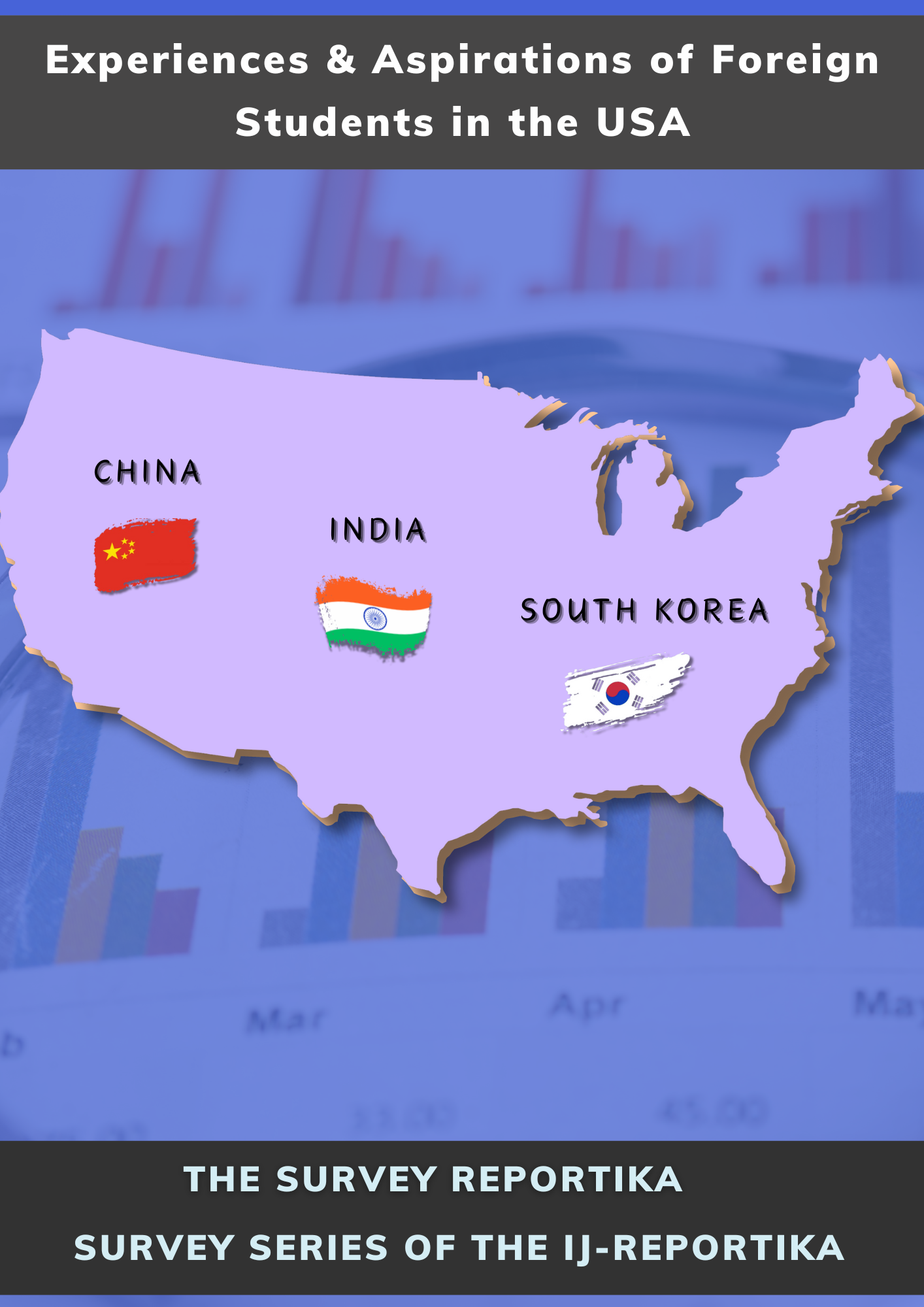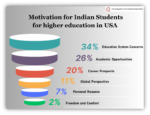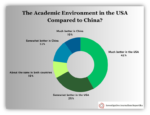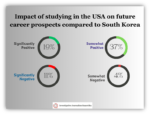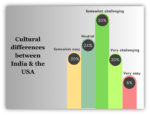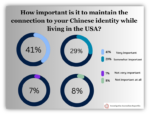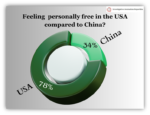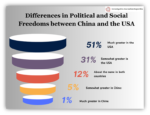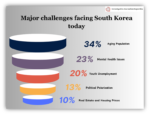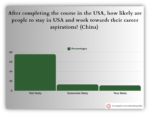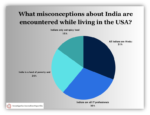In an era marked by globalization and cultural exchange, the experiences of international students studying abroad provide invaluable insights into cross-cultural dynamics, educational systems, and societal perceptions. This is the second survey in the series of “The Survey Reportika” presented by the Investigative Journalism Reportika. This iteration aims to delve into the multifaceted experiences and perspectives of students from China, India, and South Korea studying in universities across the United States of America. These three countries are among the top sources of international students in the USA, making their perspectives particularly significant.
Experiences & Aspirations of Foreign Students in the USA
Conducted anonymously, this survey gathered responses from 1,500 students, with 500 each from China, India, and South Korea, enrolled in various universities throughout the USA. The participants, while representing diverse academic disciplines and backgrounds, shared their candid insights on a range of topics, including their academic experiences, cultural adjustment, perceptions of freedom, views on their home countries, and reflections on their decision to study abroad.
By exploring the perspectives of these students, this report endeavors to offer a nuanced understanding of their academic journeys, cultural adaptation processes, and evolving perceptions of their home countries and the USA. Through their anonymity, participants were able to express themselves freely, contributing valuable insights that can inform future discussions on international education, cultural exchange, and global citizenship.
In the following sections, we present a detailed analysis of the survey findings, categorized into relevant themes, accompanied by reflections and implications drawn from the data. It is our hope that this report serves as a resource for educators, policymakers, and stakeholders interested in fostering a more inclusive and enriching educational environment for all students, regardless of their cultural background or nationality.
Download the complete Report : Click Here
Survey Overview
Conducted from February 1, 2024, to April 30, 2024, this extensive survey engaged 1,500 participants from diverse backgrounds, seeking to delve into the sentiments of students from China, India, and South Korea pursuing higher education in the USA. Utilizing a hybrid approach that blends offline and online methods, the survey ensures comprehensive representation across genders, religions, and ethnicities. Designed to explore motivations, challenges, and aspirations, this study aims to provide a nuanced understanding of the experiences of international students abroad, contributing valuable insights to ongoing conversations on global education, cultural adaptation, and international relations.
(Click on the following questions and representational images to read the opinions and survey statistics.)
Q1: What motivated you to pursue higher education in the USA instead of your home country?
Q2: From your experience, how would you rate the academic environment in the USA compared to your home country?
Q3: How do you foresee studying in the USA impacting your future career compared to studying in your home country?
Q4: How challenging have you found adapting to cultural differences between your home country and the USA?
Q5: How important is it for you to maintain your connection to your native identity while living in the USA?
Q6: Do you feel more personally free in the USA compared to China?
Q7: How would you rate the differences in political and social freedoms between your home country and the USA?
Q8: What do you see as the major challenges facing your home country today?
Q9: After completing your course in the USA, how likely are you to stay in USA and work towards your career aspirations?
Q10: What misconceptions about your home country have you encountered while living in the USA?
Conclusion
The survey highlights key motivations for international students choosing the USA for higher education. Among Chinese students, 36% cite dissatisfaction with China’s political system and restrictions on freedom. For Indian students, 34% are concerned about the rigidity and outdated nature of education system. Among South Korean students, 32% seek a global perspective and exposure to international cultures. These percentages underscore the perceived drawbacks of their home countries’ systems and the benefits of studying in the USA.
The survey also reveals that 42% of Chinese students, 39% of Indian students, and 13% of South Korean students find the academic environment in the USA much better than in their home countries, highlighting greater academic freedom, diverse opportunities, and advanced resources in the USA.
The survey highlights varied perspectives on political and social freedoms among international students. For China, 51% of respondents find freedoms much greater in the USA due to censorship and surveillance in China. In comparison, 39% of Indian students believe the USA offers greater freedoms, citing discrimination and women’s rights issues in India. For South Korea, 42% view freedoms as comparable between the two countries, but 29% see the USA as offering somewhat or much greater freedoms due to broader speech rights and a less hierarchical societal structure. Meanwhile, a notable 33% of Indian respondents believe political and social freedoms are greater in India, highlighting social schemes and constitutional protections.
The survey highlights the career aspirations of international students after completing their studies in the USA. Among Chinese students, 76% plan to return to China to contribute to its development, while 11% are very likely to stay in the USA for career opportunities in tech hubs like Silicon Valley. Indian students show a strong inclination to remain in the USA, with 40% very likely to stay, inspired by successful Indian CEOs in the West. However, 39% prefer to return to India to aid its progress. South Korean students are more moderate, with 32% very likely to stay in the USA, 45% somewhat likely, and 23% planning to return home to apply their skills.
In summation, the comprehensive survey captures the intricate tapestry of experiences and perspectives among international students studying in the USA. From motivations for pursuing higher education abroad to assessments of academic environments and considerations for post-graduation career paths, the survey provides valuable insights into the dynamics of cross-cultural interactions, educational aspirations, and societal contributions. It underscores the pivotal role of international education in fostering global understanding, facilitating personal and professional growth, and driving socio-economic development worldwide. By shedding light on the complex interplay of individual aspirations, cultural influences, and global trends, the survey offers a rich foundation for informed discourse and strategic decision-making in the realms of education policy, international relations, and global workforce development.

